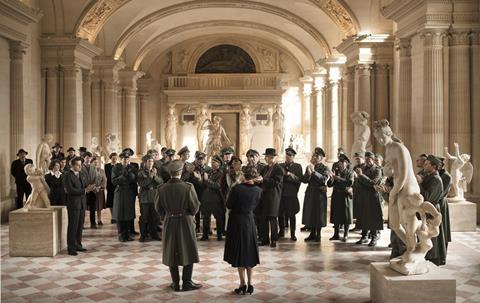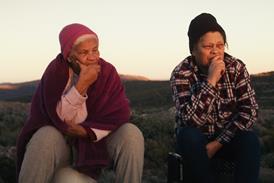SCREEN SUBSCRIBERS: Francofonia producer Pierre-Olivier Bardet tells Screen how the production built Aleksandr Sokurov’s ambitious docu-fiction.

Aleksandr Sokurov’s complex docu-fiction Francofonia, which had its world premiere in Venice, is a meditation on art and power shot largely in The Louvre.
The well-received $2m (€1.8m) France-Germany-Netherlands co-production is produced by Pierre-Olivier Bardet, Thomas Kufus and Els Vandevorst with co-producers Olivier Pere of Arte and Remi Burah.
Screen spoke to producer Bardet of Ideale Audience about how the film came together and the challenges faced along the way.
Screen: Congratulations on your film’s entry at Venice. How did you come to it?
Bardet: I’ve been working with Aleksandr for 13 years now. I produced Elegy of a Voyage in 2002 and I have distributed a number of his documentaries on DVD. So we have a strong relationship.
I was discussing the idea of doing a film in the Quai d’Orsay. I called Aleksandr to ask if he may be interested in doing something and he said ‘no…but I’d be interested to do something in the Louvre.’
So I contacted the team there and they were immediately enthusiastic about doing something with Aleksandr. Then I contacted German producer Thomas Kufus, who has produced four films by Aleksandr.
Aleksandr doesn’t write a lot so we did a lot of meetings in Saint Petersburg, where Aleksandr would tell us the story he had in his mind. We would record the sessions we would translate his Russian into German. We built the script that way.
How do you communicate with Aleksandr?
He writes to me in Russian, and I write to him in French or in English. With Google Chat it’s easier than before!
On set does he communicate with his crew in Russian?
He doesn’t speak any other languages so it was always with two translators.
We also had two editors. One was Russian, who spoke French and English fluently, the other one was German but also speaking English. English was generally the common language because my German is weak. The language did become a little complicated I must say.
How would you describe the film?
It’s not a historical movie. It’s really a film that is a meditation about art and the war and Europe, I would say.
There is a parallel in the movie with the siege of Leningrad, which is very moving. And you can see that there is a strong wish by Aleksandr to re-establish the truth about the fact that the Russians were so important in the victory of the war. That is something that in the West we sometimes forget.
The film features many ghosts, of which there are many in the Louvre alongside its paintings. The physical becomes present.
For Aleksandr the past is not something which is behind us, it is something that is under our feet - you just need to dig to find it.
How does Aleksandr cast his films?
He meets people. He’s not interested in physical resemblances. And he doesn’t want to have someone who is too much of a ‘professional’ actor.
He likes to drive, to have the actor losing their traits in order to go deeply into their souls. At different moments in the shoot he would stand in front of an actor, asking them a lot of questions to destabilise them.
But there is no sadism at all. Everything is done in a very gentle way, and even when I talk about destabilisation, there is nothing nasty in it.
He has said that ‘working with an actor is like working with a living sculpture.’
I gather he didn’t want this one to play in Berlin because that might be deemed too political a stage?
Yes. He’s afraid that the film is understood to reflect on current wars. And that he is asked questions about his relationship with Putin and what he thinks about Ukraine. He has been courageous in condemning the war in Ukraine.
He didn’t want to be driven that way in interviews.
But his last film was financed by Putin?
Not exactly. Faust was financed by a Russian fund which was created by Putin in a bid to invest in big Russian films. The financing of Faust was a kind of a political decision by this fund to say ‘we are also financing cultural movies as well.’
The web between politics, art and war can be tangled…
But you know in Russia now, like before, it’s very difficult to be an artist and not to have relationships with power. It was the same for the 20th century poets such as Mandelstam and Mayakovsky. They were connected to Stalin in a way.
I’ve worked with conductor Valery Gergiev. It’s similar. He’s extremely connected. If you are not connected to the power it’s very difficult to do things in Russia. But Sokurov has taken very brave positions against the war in Ukraine and the jailing of artists, to the extent that we are concerned for his life in Russia.
Have you discussed what you and Aleksandr might do next?
Not yet. But we will spend time together in Venice. It will give us the opportunity to talk about other projects.






















No comments yet